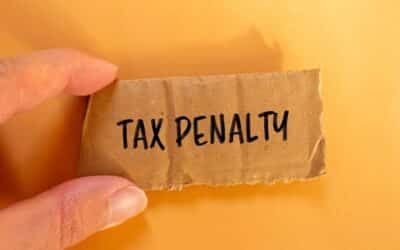Question: I am one of three equal owners of a corporation where I continue to work. I just turned age 70 and am wondering if I can defer the start of required minimum distributions from our company 401(k) plan until I retire?
Answer: Required minimum distributions (“RMDs”) must be taken from profit sharing plans, 401(k) plans, pension plans and other qualified retirement plans as well as Individual Retirement Accounts. RMDs must commence on or before April 1 of the calendar year following the year in which a taxpayer attains a specified age, in your case age 73. Distributions from qualified retirement plans, but not IRAs, can be deferred until April 1 of the calendar year following the year of retirement, except for so-called 5% owners of the entity which sponsors the plan. As a one-third owner of your company, you must commence RMDs from your company plan without regard for the date of retirement exception. However, some planning opportunities are available that may permit you to defer the commencement of your RMDs.
For RMD purposes, a 5% owner is a person who owns greater than 5% of the ownership interests or voting rights of the company sponsoring the plan. There are some technical, constructive ownership rules whereby a person is deemed to own the stock or other ownership interests of his or her spouse and other family members. In your case, that analysis is unnecessary as you individually own more than 5% of the stock of the corporation.
At the present time, a taxpayer’s status as a 5% owner status is generally determined in the calendar year in which the taxpayer attains age 73 (the “determination year”). If a taxpayer is a 5% owner in that year, the taxpayer will be deemed to be a 5% owner in all subsequent years, even if the taxpayer no longer owns more than 5% of the shares or voting power of the company. That being said, a taxpayer who is a 5% owner but divests himself or herself of ownership and voting rights before the plan year in which the taxpayer reaches age 73 will not be deemed to be a 5% owner and need not commence RMDs from company sponsored plans until retirement.
Some planning opportunities are available for employees who wish to continue their employment and defer the start of RMDs and the accompanying tax liability. A taxpayer can divest himself or herself of ownership and voting power prior to the determination year or simply decrease ownership and voting rights to 5% or less prior to that time. This will permit the taxpayer to avoid the commencement of RMDs and defer the same until the taxpayer’s actual retirement.
A taxpayer might choose to transfer company shares and voting rights to a third party and re-acquire them after the determination year. The IRS may of course challenge an arrangement of this sort if the Service can establish that the ownership divestment had no business purpose other than avoiding the commencement of RMDs.
It is noteworthy that the 5% owner exception only applies to qualified plan funds; IRA funds do not qualify for the retirement exception for non 5% owners. However, if a company plan permits IRA funds to be rolled over to the plan, a non 5% owner can transfer IRA funds to a company sponsored plan for whom he or she is employed and continue to enjoy tax deferred growth on retirement plan funds so long as 5% owner status is avoided.
For the fortunate minority of persons whose financial status does not require them to currently utilize their retirement funds, engaging in some creative planning may be desirable. The Internal Revenue Code imposes excises taxes on taxpayers who fail to timely withdraw their RMDs. However, with a recent decrease in the penalty imposed for failing to take RMDs as required, taxpayers seeking to continue to enjoy tax deferred growth in their retirement plan assets may be more willing to risk an aggressive arrangement designed to defer the commencement of RMDs.
The Tax Corner addresses various tax, estate, asset protection, and other business matters. Should you have any questions regarding the subject matter or if you have questions, you want answered, you may contact Bruce at (312) 648-2300 or send an e-mail to [email protected].


